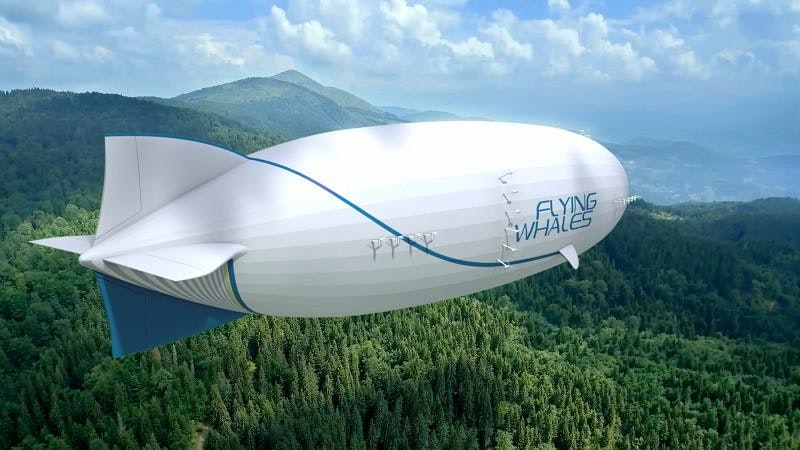On the cusp of a clean energy and automation revolution, Europe’s deeptech startups are blossoming — with plenty of them set to hit the coveted billion-dollar valuation soon.
Many — especially those building satellites and semiconductors — are being nurtured by European policymakers who see them as vital to secure the continent’s tech sovereignty in an increasingly polarised world.
Of the estimated $15bn invested in European deeptech companies in 2023, $3.4bn went to British businesses, while France and Sweden secured $3.2bn each. Semiconductor and energy startups saw the biggest uptick of interest from VCs.
To get a place on this list of Europe’s deeptech soonicorns, companies had to be founded since 2005, have a valuation of at least $500m and have raised a round since 2020. Sifted’s analysis and valuation estimates are based on Dealroom data.
Sunfire
HQ: Germany
Launch year: 2010
Valuation: $946m to $1.4bn
Dresden-based renewable energy startup Sunfire produces electrolysers for energy-intensive industries that produce renewable hydrogen and syngas (a mixture of hydrogen and carbon monoxide) from renewable electricity, steam and captured CO2 to help decarbonise supply chains. In early March it secured €500m in Series E financing — a combination of equity, debt and grants — to scale up its green hydrogen production technology, becoming one of the best-capitalised European players working on hydrogen production.
Wayve
HQ: UK
Launch year: 2017
Valuation: $800m to $1.2bn
Wayve is developing machine learning-powered software for self-driving cars. It raised a $200m Series B round in January 2022 from Balderton Capital, Microsoft and others, but hasn’t confirmed its valuation. So, while some have estimated that it has crossed the unicorn threshold, without confirmation, it remains a soonicorn. Notably, Bill Gates once took a spin in a Wayve autonomous vehicle in London to pick up some fish and chips.
DNA Script
HQ: France
Launch year: 2014
Valuation: $825m
DNA Script offers lab bench DNA printing machines to make DNA synthesis quicker and easier for scientific companies working with molecular biology. It was number three in Sifted’s deeptech soonicorns list last year with the same valuation, earned as part of a $35m Series C extension round in January 2022. The company has raised around $312m since its founding in 2014 and is backed by investors including Sofinnova Partners, EQT Life Sciences and Bpifrance.
Isar Aerospace
HQ: Germany
Launch year: 2018
Valuation: $660-990m
A spinout from the Technical University of Munich, Isar Aerospace develops and manufactures rocket-powered launch vehicles for small- to medium-sized satellites. Founded in 2018, it’s Europe’s best-funded spacetech venture, having raised $330m in funding from investors including 7-Industries Holding, Bayern Kapital and Earlybird. Companies signed up to use Isar’s services include space logistics company D-Orbit, French satellite startup Exotrail and US launch company Spaceflight.
Polarium
HQ: Sweden
Launch year: 2015
Valuation: $641m
Energy storage startup Polarium connects businesses within telecom, commercial, industrial and residential facilities to lithium-ion-battery-powered solutions. The solutions aim to help reduce businesses' energy use costs, secure power to hold in reserve and create new revenue streams. It's raised around $268m, most recently closing SEK562m ($51.5m) in funding in September 2023.
Mech-Mind Robotics
HQ: Germany
Launch year: 2016
Valuation: $620-930m
Robotics startup Mech-Mind sells industrial robots for manufacturing, logistics and warehousing, which incorporate advanced vision systems and AI algorithms. It operates in the rapidly growing market of industrial automation. Besides the robots, the Bavaria-headquartered company offers related services such as installation, training and maintenance, which bring additional revenue. It’s raised around $184m, with backers including Sequoia Capital and Source Code Capital.
Exeger
HQ: Sweden
Launch year: 2009
Valuation: $605m
Exeger manufactures solar cells with the aim of converting any kind of light into electrical power. The cells are made into a flexible rubber-like material, which means they can be added to a range of products as a more sustainable power source. The startup has already partnered with companies like sportswear brand Adidas and headphone maker Urbanista. It raised SEK180m ($16.5m) in a Series B extension in March 2023, and took a €35m loan from the European Investment Bank in December 2023, bringing its total funding to around $136m, according to Dealroom.
Carbon Clean Solutions
HQ: UK
Launch year: 2009
Valuation: $600m to $900m
London-based Carbon Clean Solutions equips industrial sites with tailored carbon capture technology solutions, helping high-impact plants reduce their carbon emissions. It secured a $150m Series C in May 2022, which saw participation from Samsung Ventures and Saudi Aramco Energy Ventures, and brought its total funding to around $213m.
Connected Kerb
HQ: UK
Launch year: 2017
Valuation: $587m to $871m
London-based Connected Kerb is installing thousands of electric vehicle chargers across the UK, through several contracts for large-scale deployments in areas such as Surrey and South Tyneside. It’s raised $145m in total, including a £120k grant from the country's innovation agency Innovate UK in October 2019 and £110m in an equity funding round from Aviva Investors in September 2022.
Oxa
HQ: UK
Launch year: 2014
Valuation: $560m to $840m
Formerly known as Oxbotica, the Oxford University spinout is developing driverless-vehicle software it hopes can be used to automate any vehicle. It raised a $140m Series C round in January 2023, and tech giant Google took a 3.5% stake in the business in October 2023. Last month, it deployed its first commercial product in a passenger shuttle service in Florida in the US. The service still has trained safety attendants to build confidence among passengers as they get used to the self-driving experience. Oxa is also focusing on autonomy in petrochemical refineries, mines, factories and airports.
ICEYE
HQ: Finland
Launch year: 2015
Valuation: $544-816m
ICEYE, a spinoff of Aalto University propelled by a European Innovation Council grant, develops data satellite services for security and industry purposes and owns a constellation of satellites that generate high-resolution remote-sensing imagery. It plans to launch up to 15 satellites this year, and just last week it put into orbit a new radar satellite service to monitor the world’s oceans. These capabilities are seen by EU officials as key to regional tech sovereignty to prevent European companies from relying on data gathered by satellites owned by companies or governments in other parts of the world. It has raised around $302m in funding, including a $136m Series D in February 2022 from investors such as Molten Ventures, True Ventures, Seraphim Space and the British Business Bank.

Flying Whales
HQ: France
Launch year: 2012
Valuation: $537m to $805m
Flying Whales is building an unmanned airship that will offer a more sustainable option for the transport of heavy or bulky loads. The company suffered a setback in November 2023, when France’s environment agency told it to rethink its plans to build two huge assembly facilities near two nature reserves in Bordeaux, delaying the takeoff of its airship. It’s also building a final production facility in the UAE, aiming to supply customers in the Middle East, India and Africa in 2027. The startup has raised around €178m from investors including Bpifrance, Invest Quebec and industrial gas provider Air Liquide.
Aledia
HQ: France
Launch year: 2011
Valuation: $528m to $792m
Aledia builds microLED electronic display lights for AR and VR devices that are based on a unique large-area silicon material, which makes it easier to produce lights at a high yield for a lower cost. It’s recently unveiled a new strategy setting a goal to increase production capacity above 5,000 wafer starts per week, and focus on consumer goods like smartwatches, augmented reality glasses and smartphones. With the €120m Series D it secured in September 2023 from backers including Bpifrance, total funding stands at around $301m, plus €30m in debt.
Aleph Alpha
HQ: Germany
Launch year: 2019
Valuation: $500m
The Heidelberg-based startup offers a platform to help businesses and governments develop generative AI tools and research, which includes large language models trained in five languages and the ability to modify systems to suit the needs of specialised environments.
Many in Europe hope Aleph Alpha could help the EU become less dependent on US GenAI companies such as Microsoft-backed OpenAI. It’s already built its own chatbot called Lumi.
It raised a €100m round in June from funders including chip-maker NVIDIA. Its customers include the German government, the City of Heidelberg and several German universities.


